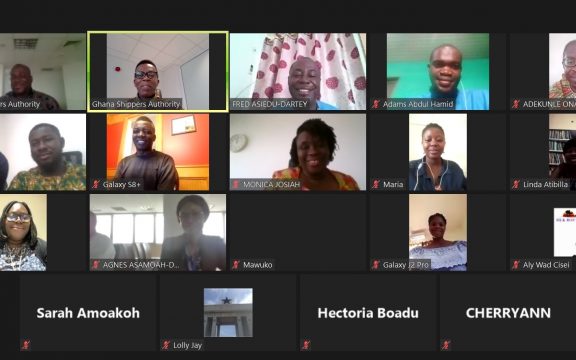There appears to be a shift in Ghana’s narrative for being known as one of the biggest exporters of raw or unrefined shea butter to one that exports the product in a processed or refined state.
Data from the Global Shea Alliance estimated that about 300,000 metric tonnes of shea was exported into Europe from Africa in 2020. Out of the four (4) major producers of shea nut; Nigeria, Uganda, Mali and Ghana, Ghana has been considered the largest exporter of unrefined shea butter on the continent, with approximately 94,000,000 shea trees producing up to 60,000 metric tonnes of shea nuts every year.
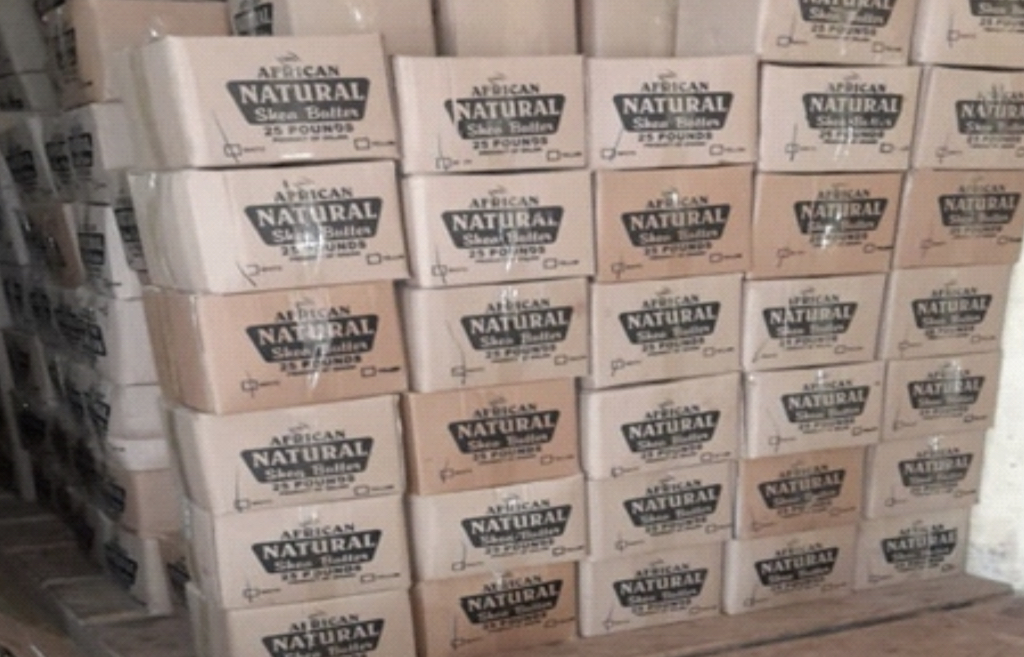 In recent times however, an appreciable number of exporters of shea butter have become determined to invest resources into processing the shea into butter before exporting. It is no surprise that the UK Centre for the Promotion of Imports from developing countries (CBI) classifies Ghana as the country with the most developed shea processing sector compared to other countries on the continent.
In recent times however, an appreciable number of exporters of shea butter have become determined to invest resources into processing the shea into butter before exporting. It is no surprise that the UK Centre for the Promotion of Imports from developing countries (CBI) classifies Ghana as the country with the most developed shea processing sector compared to other countries on the continent.
Ghana thus owes this milestone to the many shea butter processing businesses in the northern parts of the country; one being the Asheba Company Limited. Asheba Company Limited is a privately-owned medium-scale agribusiness that specializes in the processing of shea nuts into shea butter and shea butter-based products such as body, hair and baby creams/ pomades, bar soaps (Black Soap) among others for local and international markets, mainly in the USA and Europe.
The Founder and CEO of Asheba Company Limited, Ms. Ayisha Fuseini is an advocate for the export of processed shea butter., She said, “the Government should empower local shea producers to process shea into butter for export rather than exporting the raw shea nuts to other countries”
Asheba – Processing Centers
The company has two (2) separate processing centers at Sorugu and Malishagu for their Shea butter production activities. Aside adding value to the shea butter for locals, the processing centers produce for the export market as well. Ms. Ayisha Fuseini is of the belief that the beneficiary communities will have a continuous avenue to earn income from the jobs created especially for the women in such areas. “I constructed the processing center to help reduce the man-power being put into the making of the butter and also reduce the time being put into it”, she added.
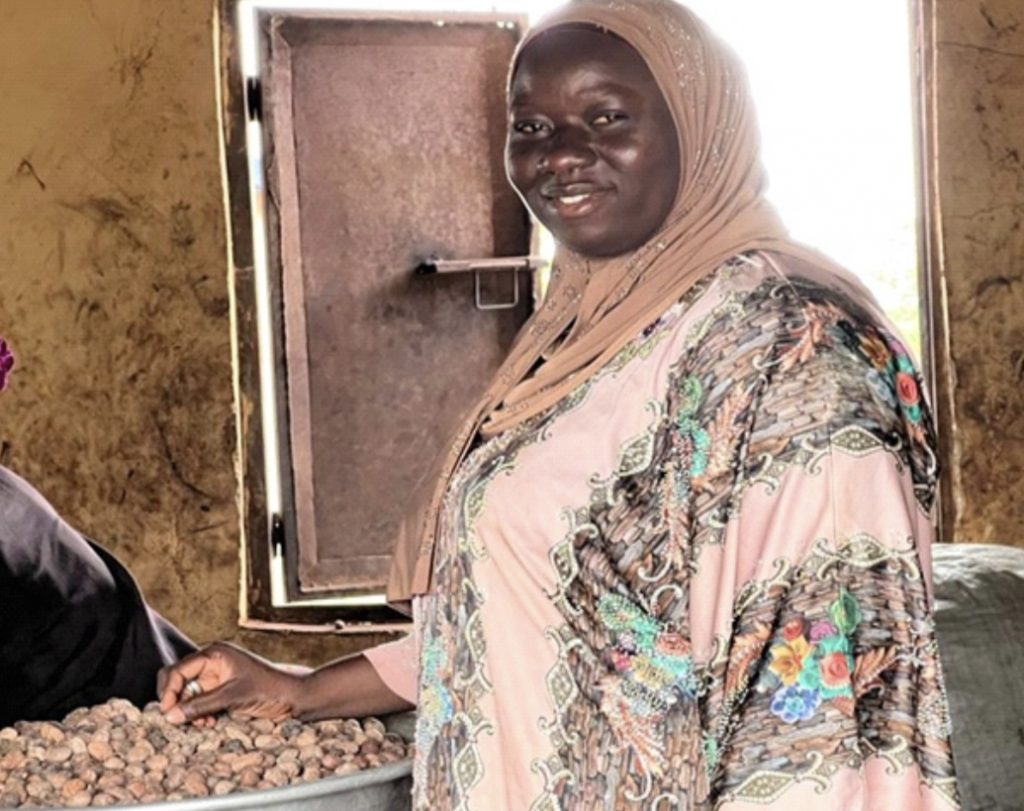 While explaining her production processes, she said, “I sometimes buy the nuts for the women and they do the processing or I buy the shea butter already prepared from them. After the butter is prepared, it is packaged and exported.”
While explaining her production processes, she said, “I sometimes buy the nuts for the women and they do the processing or I buy the shea butter already prepared from them. After the butter is prepared, it is packaged and exported.”
Asheba Company Limited runs a continuous programme that recruits nearly one hundred (100) women per year in its two processing centers. They intend to expand their export capacity and by that create more jobs.
How it Started
As the third child in a family of ten (10), Ayisha Fuseini encountered financial challenges during her education as she witnessed her mother, who was then at the bottom of the supply chain of the shea butter business, earn very little money from processing shea butter. Through trainings received, including the little assistance she offered her mother in the shea butter production process, Ayisha was able to amass enough knowledge from her experiences, and these influenced her to come up with a business idea that would change the economic dynamics of her community in the long run.
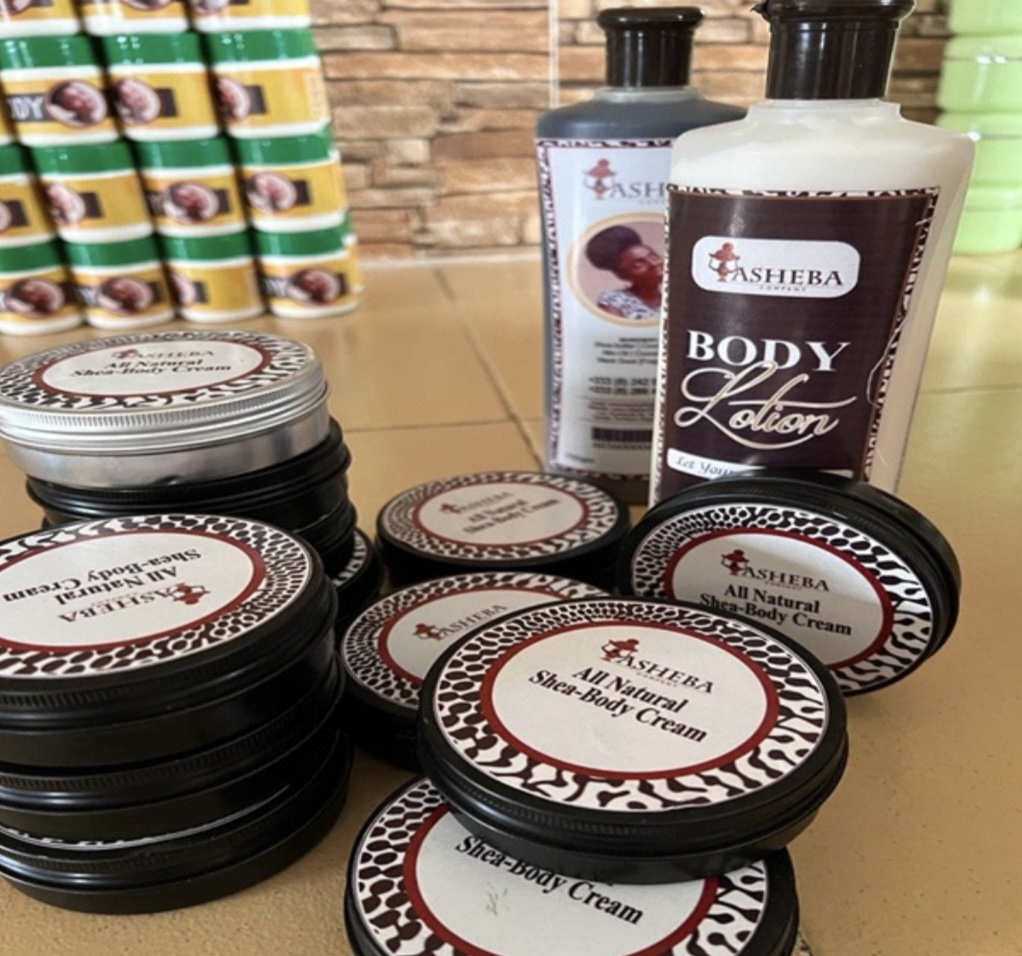 After receiving glowing reviews and recommendations from family and friends that admired the quality of her products and packaging, Ms. Ayisha Fuseini was inspired to go into exportation fully. She said “Asheba Company Limited started exporting its 100% natural shea in 2014; and this was when a local retailer, through one of my customers referred to me that the packaging of my product was what attracted her (the retailer) to purchase it”.
After receiving glowing reviews and recommendations from family and friends that admired the quality of her products and packaging, Ms. Ayisha Fuseini was inspired to go into exportation fully. She said “Asheba Company Limited started exporting its 100% natural shea in 2014; and this was when a local retailer, through one of my customers referred to me that the packaging of my product was what attracted her (the retailer) to purchase it”.
The customer who was in the business herself, shared a story of how she used to export shea butter in calabashes stuffed in sacks and which ended up melting and made a mess in the shipping container upon arrival in Europe. She revealed how she ended up losing more than half of the shea butter as well as incurring extra costs for the mess the butter made in the Shipping container. Ms. Ayisha Fuseini disclosed how she was inspired to invest more into the packaging of her products, and how that investment has gone a long way to increase her customer base both locally and internationally.
Asheba Company Limited has grown from just a profit-making entity into a Corporate Social Responsibility (CSR)-driven organization contributing to reducing poverty among women. The company, also focuses on empowering women through the shea butter trade because, it believes that women in such rural areas have the potential to contribute to sustainable economic growth through the increased job avenues and higher incomes it provides. This is complemented by the training in production and customer service.
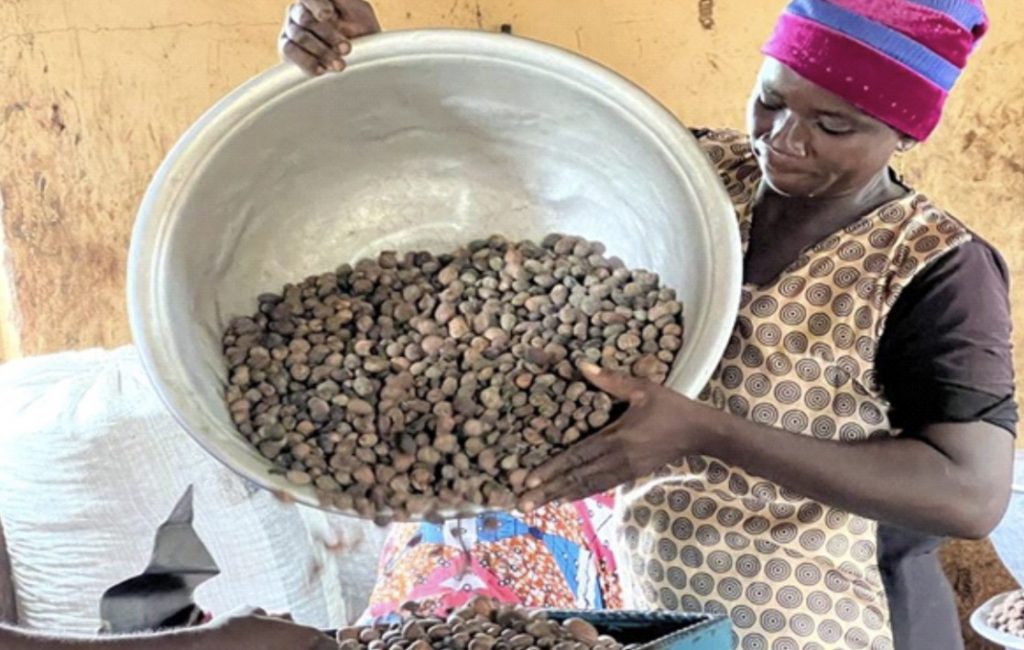
Achievements
Asheba Company Limited has performed well since it began its journey in export in 2014. The company’s financial footing for exports was made possible after it received funding and mentorship from Engine Ghana to support its business plan. The following year, Asheba Company Limited was selected out of a pool of 1,000 participants to receive a loan under the Youth Enterprise Support Program. These contributed to the company’s financial ability to commence the journey in the export of its processed shea butter and shea butter products, for which the company remains grateful.





